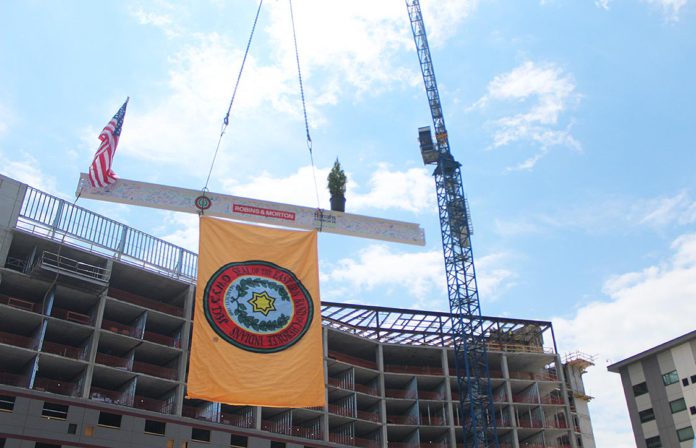Access to this page has been denied a human (and not a bot).Press & HoldPlease check your network connection or disable your ad-blocker.’; document.body.appendChild(div); }; ]]>
Continue reading
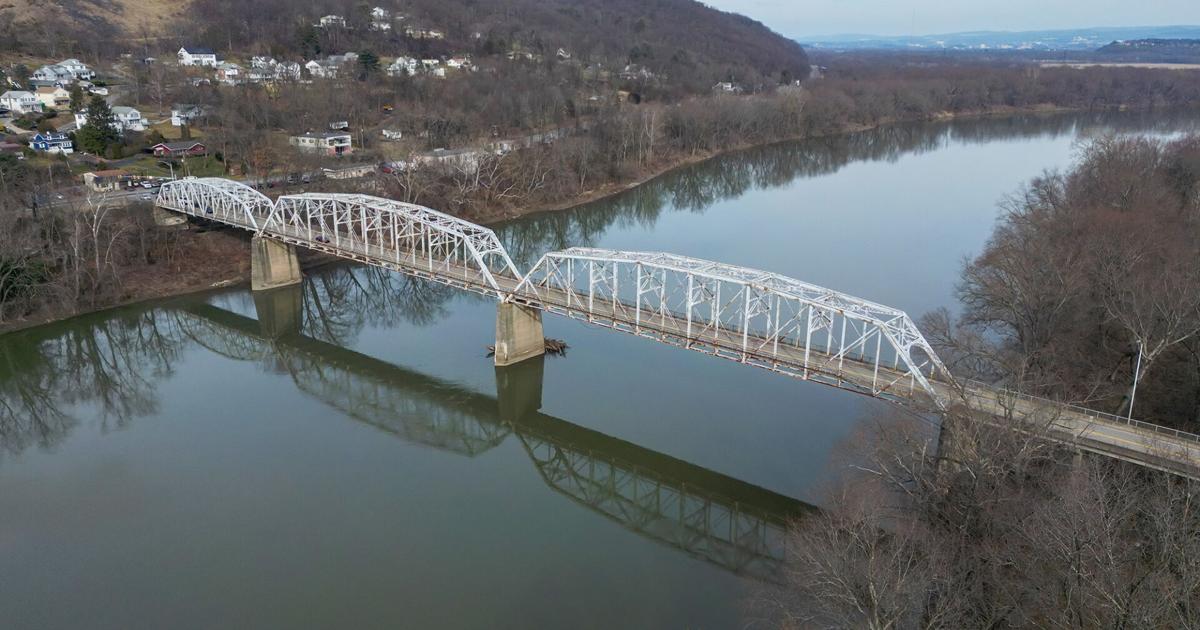
State AlabamaAlaskaArizonaArkansasCaliforniaColoradoConnecticutDelawareFloridaGeorgiaHawaiiIdahoIllinoisIndianaIowaKansasKentuckyLouisianaMaineMarylandMassachusettsMichiganMinnesotaMississippiMissouriMontanaNebraskaNevadaNew HampshireNew JerseyNew MexicoNew YorkNorth CarolinaNorth DakotaOhioOklahomaOregonPennsylvaniaRhode IslandSouth CarolinaSouth DakotaTennesseeTexasUtahVermontVirginiaWashingtonWashington D.C.West VirginiaWisconsinWyomingPuerto RicoUS Virgin IslandsArmed Forces AmericasArmed Forces PacificArmed Forces EuropeNorthern Mariana IslandsMarshall IslandsAmerican SamoaFederated States of MicronesiaGuamPalauAlberta, CanadaBritish Columbia, CanadaManitoba, CanadaNew Brunswick, CanadaNewfoundland, CanadaNova Scotia, CanadaNorthwest Territories, CanadaNunavut, CanadaOntario, CanadaPrince Edward Island, CanadaQuebec, CanadaSaskatchewan, CanadaYukon Territory, Canada
Zip Code
Country United States of AmericaUS Virgin IslandsUnited States Minor Outlying IslandsCanadaMexico, United Mexican StatesBahamas, Commonwealth of theCuba, Republic ofDominican RepublicHaiti, Republic ofJamaicaAfghanistanAlbania, People’s Socialist Republic ofAlgeria, People’s Democratic Republic ofAmerican SamoaAndorra, Principality ofAngola, Republic ofAnguillaAntarctica (the territory South of 60 deg S)Antigua and BarbudaArgentina, Argentine RepublicArmeniaArubaAustralia, Commonwealth ofAustria, Republic ofAzerbaijan, Republic ofBahrain, Kingdom ofBangladesh, People’s Republic ofBarbadosBelarusBelgium, Kingdom ofBelizeBenin, People’s Republic ofBermudaBhutan, Kingdom ofBolivia, Republic ofBosnia and HerzegovinaBotswana, Republic ofBouvet Island (Bouvetoya)Brazil, Federative Republic ofBritish Indian Ocean Territory (Chagos Archipelago)British Virgin IslandsBrunei DarussalamBulgaria, People’s Republic ofBurkina FasoBurundi, Republic ofCambodia, Kingdom ofCameroon, United Republic ofCape Verde, Republic ofCayman IslandsCentral African RepublicChad, Republic ofChile, Republic ofChina, People’s Republic ofChristmas IslandCocos (Keeling) IslandsColombia, Republic ofComoros, Union of theCongo, Democratic Republic ofCongo, People’s Republic ofCook IslandsCosta Rica, Republic ofCote D’Ivoire, Ivory Coast, Republic of theCyprus, Republic ofCzech RepublicDenmark, Kingdom ofDjibouti, Republic ofDominica, Commonwealth ofEcuador, Republic ofEgypt, Arab Republic ofEl Salvador, Republic ofEquatorial Guinea, Republic ofEritreaEstoniaEthiopiaFaeroe IslandsFalkland Islands (Malvinas)Fiji, Republic of the Fiji IslandsFinland, Republic ofFrance, French RepublicFrench GuianaFrench PolynesiaFrench Southern TerritoriesGabon, Gabonese RepublicGambia, Republic of theGeorgiaGermanyGhana, Republic ofGibraltarGreece, Hellenic RepublicGreenlandGrenadaGuadaloupeGuamGuatemala, Republic ofGuinea, Revolutionary People’s Rep’c ofGuinea-Bissau, Republic ofGuyana, Republic ofHeard and McDonald IslandsHoly See (Vatican City State)Honduras, Republic ofHong Kong, Special Administrative Region of ChinaHrvatska (Croatia)Hungary, Hungarian People’s RepublicIceland, Republic ofIndia, Republic ofIndonesia, Republic ofIran, Islamic Republic ofIraq, Republic ofIrelandIsrael, State ofItaly, Italian RepublicJapanJordan, Hashemite Kingdom ofKazakhstan, Republic ofKenya, Republic ofKiribati, Republic ofKorea, Democratic People’s Republic ofKorea, Republic ofKuwait, State ofKyrgyz RepublicLao People’s Democratic RepublicLatviaLebanon, Lebanese RepublicLesotho, Kingdom…
MSN 3&&void 0!==arguments[3]?arguments[3]:p.Alert,s=arguments.length>4?arguments[4]:void 0,c=arguments.length>5?arguments[5]:void 0;try{const l=function(){if(!o){const e=document.head.getAttribute(“data-client-settings”);e&&(o=JSON.parse(e))}return o}(),u=a(),g=function(e){if(e){const{pcsInfo:t,pageGenTime:n}=e,o=new Date(n).getTime(),i=!t||[“prod”,”prod-ssr”,”prod-ssrntp”].includes(t.env);r=i?”browser.events.data.msn.com”:”events-sandbox.data.msn.com”;return{cors:”true”,”content-type”:”application/x-json-stream”,”client-id”:”NO_AUTH”,”client-version”:”1DS-Web-JS-2.2.2″,apikey:i?”0ded60c75e44443aa3484c42c1c43fe8-9fc57d3f-fdac-4bcf-b927-75eafe60192e-7279″:”f8857dedc6f54ca8962cfb713e01e7d7-e9250191-fe0b-446f-95ae-07516262f98c-7028″,”upload-time”:o,w:”0″,anoncknm:”app_anon”}}return null}(l);let m=””;g&&g.apikey&&””!==g.apikey&&(m=function(e){if(e){const t=e.indexOf(“-“);if(t>0)return e.substring(0,t)}return””}(g.apikey));const f=function(e,t,n,o,i,s){let r=arguments.length>6&&void 0!==arguments[6]?arguments[6]:p.Alert;if(n){i=i||{};const{apptype:c,audienceMode:l,pagetype:u,pageGenTime:p,bundleInfo:h,deviceFormFactor:g=””,fd_muid:m,os:f}=n;i.pageGenTime=p,i.build=h&&h.v,i.appType=c;const b=function(e,t,n){const o=n&&”phone”===n.toLowerCase(),i=t&&”enterprise”===t;return{bingHomepage:”binghomepage”,mmx:”emmx”,edge:”spartan”,edgeChromium:i?”entnews”:”anaheim”,hybrid:”spartan”,hub:o?”prime_mobile”:”prime”,microsoftNews:”msnews”,office:”entnews”,views:o?”prime_mobile”:”prime”,windowsShell:”windowsshell”}[e]}(c,l,g),v=b||c,y=document.getElementsByTagName(“html”)[0].getAttribute(“lang”);let k,S=””,A=”muid”;try{if(“edgeChromium”===c&&”object”==typeof window&&window.location&&window.location.search){const e=new URLSearchParams(window.location.search);k=e.has(“startpage”)?”msedgdhp”:”msedgntp”,”enterprise”===l?k=”entnewsntp”:”xbox”===f&&(k=”xboxntp”)}window&&window.getCookieConsentRequired&&”function”==typeof window.getCookieConsentRequired&&window.getCookieConsentRequired()||(S=d(“muid”))}catch{}S||(S=n.aid,A=”aid”);const C={name:”MS.News.Web.AppError”,time:p,ver:”4.0″,iKey:`o:${o}`,data:{baseData:{},baseType:”MS.News.Web.Base”,page:{name:”default”,product:v,type:w(u),content:{category:”standaloneError”},ocid:k},browser:{clientId:S,clientIdType:A},flight:{id:s},request:{activityId:n.aid,requestId:n.aid,afdMuid:m},locale:{mkt:y},extSchema:{id:e,severity:r,pb:i,message:t}}};var a;if(S&&”muid”===A)C.ext={…null==C?void 0:C.ext,user:{…null==C||null===(a=C.ext)||void 0===a?void 0:a.user,localId:`t:${S}`}};return C.data.flight.tmpl=””,”object”==typeof window&&(window.isSSREnabled&&(C.data.flight.tmpl+=”;ssr-enabled:1″),window.isSSRCompleted&&(C.data.flight.tmpl+=”;ssr-completed:1″)),C?JSON.stringify(C):null}return null}(t,e,l,m,n,u,i);if(c&&!function(e){if(null==e)return!1;return e.startsWith(“2”)||e.startsWith(“3″)}(null==l?void 0:l.aid))return console.error(f),void console.error(`This App error Id: ${t} will not be sent due to app error sampling!`);if(g&&f){console.error(f),h.push(f);const e=”https://”+r+”/OneCollector/1.0″+function(e){return”?”+Object.keys(e).map((function(t){return t+”=”+encodeURIComponent(e[t])})).join(“&”)}(g);if(s&&!performance.getEntriesByType(“visibility-state”).some((e=>”visible”===e.name))){const t=()=>{“visible”===document.visibilityState&&navigator.sendBeacon(e,f)};document.addEventListener(“visibilitychange”,t,{once:!0})}else navigator.sendBeacon(e,f)}}catch{}}function w(e){let t=e;switch(e){case”windowsshellhp”:t=”dhp”;break;case”video”:t=”watch”}return t}const m=”visibilitychange”;function f(){return”visible”===document.visibilityState?Promise.resolve():new Promise((e=>{document.addEventListener(m,(()=>{“visible”===document.visibilityState&&e()}))}))}function b(e){const t=window&&window.chrome&&window.chrome.ntpSettingsPrivate;t&&t.logLoadingError&&f().then((()=>{t.logLoadingError(e)}))}function v(e){try{if(e)return JSON.parse(e)}catch(e){}return null}function y(){return!(“undefined”==typeof window||!window.document||!window.document.createElement||window.isRenderServiceEnv)}const k=”Authorization”;var S,A;!function(e){e.Presentation=”presentation”}(S||(S={})),function(e){e.Unknown=”Unknown”,e.Portrait=”Portrait”,e.Landscape=”Landscape”}(A||(A={}));var C,x;!function(e){e[e.Undefined=0]=”Undefined”,e[e.Basic=1]=”Basic”,e[e.Advanced=2]=”Advanced”,e[e.Premium=3]=”Premium”}(C||(C={})),function(e){e.Init=”init”,e.Config=”config”,e.Targeted=”targeted”,e.Sticky=”sticky”,e.NoSticky=”no_sticky”,e.Admin=”admin”,e.Forced=”forced”,e.Manual=”manual”}(x||(x={}));new Set([“winp0dash”,”winp1taskbar”,”winp1taskbarent”,”winp1taskbardirect”,”winp1taskbardirectent”,”winp1taskbarent”,”winp2juntaskbar”,”winp2juntaskbarent”,”winp2″,”winp2ent”,”winp2fp”,”winp2fpent”,”winp2fptaskbar”,”winp2fptaskbarent”,”winp2fptaskbarhover”,”winp2fptaskbarhoverent”,”winp2widget”,”winp2widgetent”]);const I=new Set([“finance-app-win”,”weather-app-win”,”winpstoreapp”]),_=(new Set([“msedgdhp”,”msedgdhphdr”,”msedgntphdr”,”msedgntp”,”msedgdhp”,”entnewsntp”]),new Set([“hpmsn”]));function q(){var e;return y()?v(document.head.dataset.clientSettings||(null===(e=document.getElementsByClassName(“peregrine-widget-settings”)[0])||void 0===e?void 0:e.getAttribute(“data-client-settings”))):null}const E=”feed/personalize/settings”;function O(e,t){const n=t.replace(/[[]]/g,”\$&”),o=new RegExp(“[?&]”+n+”(=([^&#]*)|&|#|$)”).exec(e);if(!o)return null;const i=o[2];return decodeURIComponent(i.replace(/+/g,” “))||””}let N=new class{constructor(){y()?(this.isDebugEnabled=(O(window.location.href,”debug”)||””).toLowerCase()in{1:1,true:1}||”vp”===(O(window.location.href,”reqsrc”)||””).toLowerCase(),this.isDebugEnabled&&!n.g.TEST_ENV&&(window.webpackRequire=n)):this.isDebugEnabled=!1}getLoggingService(){return null}isDebug(){return this.isDebugEnabled}setDebug(e){this.isDebugEnabled=e}setTags(e){}log(e,t){this.isDebug()&&console.info(e)}logError(e){console.error(e)}logCallback(e){this.isDebug()&&console.info(e())}logObjects(){this.isDebug()&&console.log(…arguments)}logSingleObject(e,t){this.isDebug()&&console.log(e)}};class T{get supported(){return!!this.storage}constructor(e){this.storage=e}getItem(e){if(this.supported)return this.storage.getItem(e)}getObject(e,t){const n=this.getItem(e);if(null!=n){const e=v(n);if(null!=e)return e}return t}key(e){if(this.supported&&e>=0)return this.storage.key(e)}keys(){return this.supported?Object.keys(this.storage):[]}setObject(e,t){void 0!==t?this.setItem(e,JSON.stringify(t)):this.removeItem(e)}removeObject(e){const t=this.removeItem(e);if(null!=t)return v(t)}setItem(e,t){let n=!(arguments.length>2&&void 0!==arguments[2])||arguments[2];if(this.supported)try{if(!t)throw”Attempted to store null/undefined value: “+t;this.storage.setItem(e,t)}catch(e){if(!n)throw e;N.logError(e)}else if(!n)throw new Error(“WebStorage not supported”)}get length(){if(this.supported)return this.storage.length}removeItem(e){if(this.supported){const t=this.getItem(e);return this.storage.removeItem(e),t}}clear(){this.supported&&this.storage.clear()}removeSubstringKeys(e){if(!this.supported||!e)return;const t=[];for(let n=0;n
Continue reading
MSN
MSN 3&&void 0!==arguments[3]?arguments[3]:p.Alert,s=arguments.length>4?arguments[4]:void 0,c=arguments.length>5?arguments[5]:void 0;try{const l=function(){if(!o){const e=document.head.getAttribute(“data-client-settings”);e&&(o=JSON.parse(e))}return o}(),u=a(),g=function(e){if(e){const{pcsInfo:t,pageGenTime:n}=e,o=new Date(n).getTime(),i=!t||[“prod”,”prod-ssr”,”prod-ssrntp”].includes(t.env);r=i?”browser.events.data.msn.com”:”events-sandbox.data.msn.com”;return{cors:”true”,”content-type”:”application/x-json-stream”,”client-id”:”NO_AUTH”,”client-version”:”1DS-Web-JS-2.2.2″,apikey:i?”0ded60c75e44443aa3484c42c1c43fe8-9fc57d3f-fdac-4bcf-b927-75eafe60192e-7279″:”f8857dedc6f54ca8962cfb713e01e7d7-e9250191-fe0b-446f-95ae-07516262f98c-7028″,”upload-time”:o,w:”0″,anoncknm:”app_anon”}}return null}(l);let m=””;g&&g.apikey&&””!==g.apikey&&(m=function(e){if(e){const t=e.indexOf(“-“);if(t>0)return e.substring(0,t)}return””}(g.apikey));const f=function(e,t,n,o,i,s){let r=arguments.length>6&&void 0!==arguments[6]?arguments[6]:p.Alert;if(n){i=i||{};const{apptype:c,audienceMode:l,pagetype:u,pageGenTime:p,bundleInfo:h,deviceFormFactor:g=””,fd_muid:m,os:f}=n;i.pageGenTime=p,i.build=h&&h.v,i.appType=c;const b=function(e,t,n){const o=n&&”phone”===n.toLowerCase(),i=t&&”enterprise”===t;return{bingHomepage:”binghomepage”,mmx:”emmx”,edge:”spartan”,edgeChromium:i?”entnews”:”anaheim”,hybrid:”spartan”,hub:o?”prime_mobile”:”prime”,microsoftNews:”msnews”,office:”entnews”,views:o?”prime_mobile”:”prime”,windowsShell:”windowsshell”}[e]}(c,l,g),v=b||c,y=document.getElementsByTagName(“html”)[0].getAttribute(“lang”);let k,S=””,A=”muid”;try{if(“edgeChromium”===c&&”object”==typeof window&&window.location&&window.location.search){const e=new URLSearchParams(window.location.search);k=e.has(“startpage”)?”msedgdhp”:”msedgntp”,”enterprise”===l?k=”entnewsntp”:”xbox”===f&&(k=”xboxntp”)}window&&window.getCookieConsentRequired&&”function”==typeof window.getCookieConsentRequired&&window.getCookieConsentRequired()||(S=d(“muid”))}catch{}S||(S=n.aid,A=”aid”);const C={name:”MS.News.Web.AppError”,time:p,ver:”4.0″,iKey:`o:${o}`,data:{baseData:{},baseType:”MS.News.Web.Base”,page:{name:”default”,product:v,type:w(u),content:{category:”standaloneError”},ocid:k},browser:{clientId:S,clientIdType:A},flight:{id:s},request:{activityId:n.aid,requestId:n.aid,afdMuid:m},locale:{mkt:y},extSchema:{id:e,severity:r,pb:i,message:t}}};var a;if(S&&”muid”===A)C.ext={…null==C?void 0:C.ext,user:{…null==C||null===(a=C.ext)||void 0===a?void 0:a.user,localId:`t:${S}`}};return C.data.flight.tmpl=””,”object”==typeof window&&(window.isSSREnabled&&(C.data.flight.tmpl+=”;ssr-enabled:1″),window.isSSRCompleted&&(C.data.flight.tmpl+=”;ssr-completed:1″)),C?JSON.stringify(C):null}return null}(t,e,l,m,n,u,i);if(c&&!function(e){if(null==e)return!1;return e.startsWith(“2”)||e.startsWith(“3″)}(null==l?void 0:l.aid))return console.error(f),void console.error(`This App error Id: ${t} will not be sent due to app error sampling!`);if(g&&f){console.error(f),h.push(f);const e=”https://”+r+”/OneCollector/1.0″+function(e){return”?”+Object.keys(e).map((function(t){return t+”=”+encodeURIComponent(e[t])})).join(“&”)}(g);if(s&&!performance.getEntriesByType(“visibility-state”).some((e=>”visible”===e.name))){const t=()=>{“visible”===document.visibilityState&&navigator.sendBeacon(e,f)};document.addEventListener(“visibilitychange”,t,{once:!0})}else navigator.sendBeacon(e,f)}}catch{}}function w(e){let t=e;switch(e){case”windowsshellhp”:t=”dhp”;break;case”video”:t=”watch”}return t}const m=”visibilitychange”;function f(){return”visible”===document.visibilityState?Promise.resolve():new Promise((e=>{document.addEventListener(m,(()=>{“visible”===document.visibilityState&&e()}))}))}function b(e){const t=window&&window.chrome&&window.chrome.ntpSettingsPrivate;t&&t.logLoadingError&&f().then((()=>{t.logLoadingError(e)}))}function v(e){try{if(e)return JSON.parse(e)}catch(e){}return null}function y(){return!(“undefined”==typeof window||!window.document||!window.document.createElement||window.isRenderServiceEnv)}const k=”Authorization”;var S,A;!function(e){e.Presentation=”presentation”}(S||(S={})),function(e){e.Unknown=”Unknown”,e.Portrait=”Portrait”,e.Landscape=”Landscape”}(A||(A={}));var C,x;!function(e){e[e.Undefined=0]=”Undefined”,e[e.Basic=1]=”Basic”,e[e.Advanced=2]=”Advanced”,e[e.Premium=3]=”Premium”}(C||(C={})),function(e){e.Init=”init”,e.Config=”config”,e.Targeted=”targeted”,e.Sticky=”sticky”,e.NoSticky=”no_sticky”,e.Admin=”admin”,e.Forced=”forced”,e.Manual=”manual”}(x||(x={}));new Set([“winp0dash”,”winp1taskbar”,”winp1taskbarent”,”winp1taskbardirect”,”winp1taskbardirectent”,”winp1taskbarent”,”winp2juntaskbar”,”winp2juntaskbarent”,”winp2″,”winp2ent”,”winp2fp”,”winp2fpent”,”winp2fptaskbar”,”winp2fptaskbarent”,”winp2fptaskbarhover”,”winp2fptaskbarhoverent”,”winp2widget”,”winp2widgetent”]);const I=new Set([“finance-app-win”,”weather-app-win”,”winpstoreapp”]),_=(new Set([“msedgdhp”,”msedgdhphdr”,”msedgntphdr”,”msedgntp”,”msedgdhp”,”entnewsntp”]),new Set([“hpmsn”]));function q(){var e;return y()?v(document.head.dataset.clientSettings||(null===(e=document.getElementsByClassName(“peregrine-widget-settings”)[0])||void 0===e?void 0:e.getAttribute(“data-client-settings”))):null}const E=”feed/personalize/settings”;function O(e,t){const n=t.replace(/[[]]/g,”\$&”),o=new RegExp(“[?&]”+n+”(=([^&#]*)|&|#|$)”).exec(e);if(!o)return null;const i=o[2];return decodeURIComponent(i.replace(/+/g,” “))||””}let N=new class{constructor(){y()?(this.isDebugEnabled=(O(window.location.href,”debug”)||””).toLowerCase()in{1:1,true:1}||”vp”===(O(window.location.href,”reqsrc”)||””).toLowerCase(),this.isDebugEnabled&&!n.g.TEST_ENV&&(window.webpackRequire=n)):this.isDebugEnabled=!1}getLoggingService(){return null}isDebug(){return this.isDebugEnabled}setDebug(e){this.isDebugEnabled=e}setTags(e){}log(e,t){this.isDebug()&&console.info(e)}logError(e){console.error(e)}logCallback(e){this.isDebug()&&console.info(e())}logObjects(){this.isDebug()&&console.log(…arguments)}logSingleObject(e,t){this.isDebug()&&console.log(e)}};class T{get supported(){return!!this.storage}constructor(e){this.storage=e}getItem(e){if(this.supported)return this.storage.getItem(e)}getObject(e,t){const n=this.getItem(e);if(null!=n){const e=v(n);if(null!=e)return e}return t}key(e){if(this.supported&&e>=0)return this.storage.key(e)}keys(){return this.supported?Object.keys(this.storage):[]}setObject(e,t){void 0!==t?this.setItem(e,JSON.stringify(t)):this.removeItem(e)}removeObject(e){const t=this.removeItem(e);if(null!=t)return v(t)}setItem(e,t){let n=!(arguments.length>2&&void 0!==arguments[2])||arguments[2];if(this.supported)try{if(!t)throw”Attempted to store null/undefined value: “+t;this.storage.setItem(e,t)}catch(e){if(!n)throw e;N.logError(e)}else if(!n)throw new Error(“WebStorage not supported”)}get length(){if(this.supported)return this.storage.length}removeItem(e){if(this.supported){const t=this.getItem(e);return this.storage.removeItem(e),t}}clear(){this.supported&&this.storage.clear()}removeSubstringKeys(e){if(!this.supported||!e)return;const t=[];for(let n=0;n
Continue reading
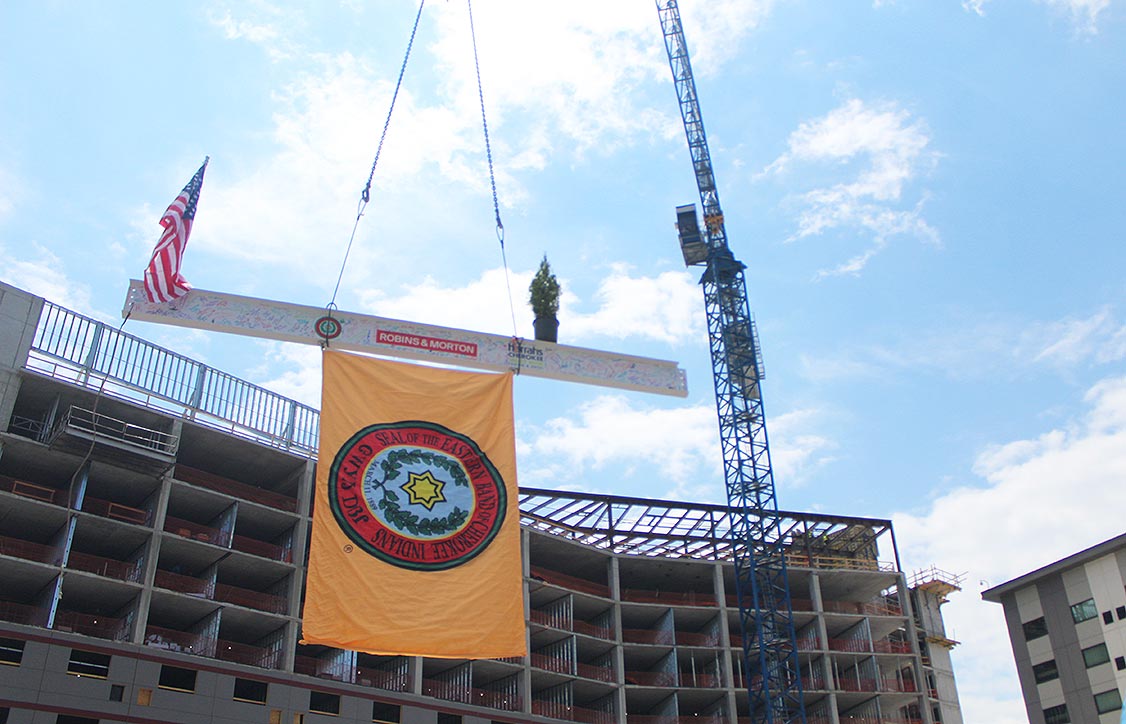
MURPHY, NC – Harrah’s Cherokee Valley River continues to make considerable strides towards completing its $275 million expansion project as they recently held a topping out ceremony for its new 12-story hotel tower. The event, attended by Harrah’s Cherokee leadership, dignitaries from the Eastern Band of Cherokee Indians and construction team members, provided an opportunity to celebrate the project’s progress and recognize the collaborative effort of those who have dedicated their time to aid in the project’s development. Those in attendance were also able to sign the final steel beam to leave their mark on the new amenity.
The celebration included remarks from Lumpy Lambert, Harrah’s Cherokee Valley River GM, who expressed his gratitude to company stakeholders, partners and construction teams led by Robins & Morton for their continued efforts.
“It’s exciting to see how far we’ve come during this expansion project since breaking ground in 2022,” said Lambert. “We are particularly grateful to our stakeholders, partners and construction teams for their continued efforts and support. They are the backbone of this project and have played a significant role in us reaching this milestone.”
Harrah’s Cherokee also recently celebrated the completion of the first phase of its expansion project in May with the opening of a new 25,000 sq. ft. casino floor and 10-table World Series of Poker – Poker Room. Upon completion, the second phase of the expansion project will introduce 296 additional hotel rooms, an indoor pool and fitness center, 12,000 sq. ft. rooftop restaurant featuring a 12-seat bar and wine cellar, and a 9,600 sq. ft. spa featuring six treatment rooms, relaxation lounge…
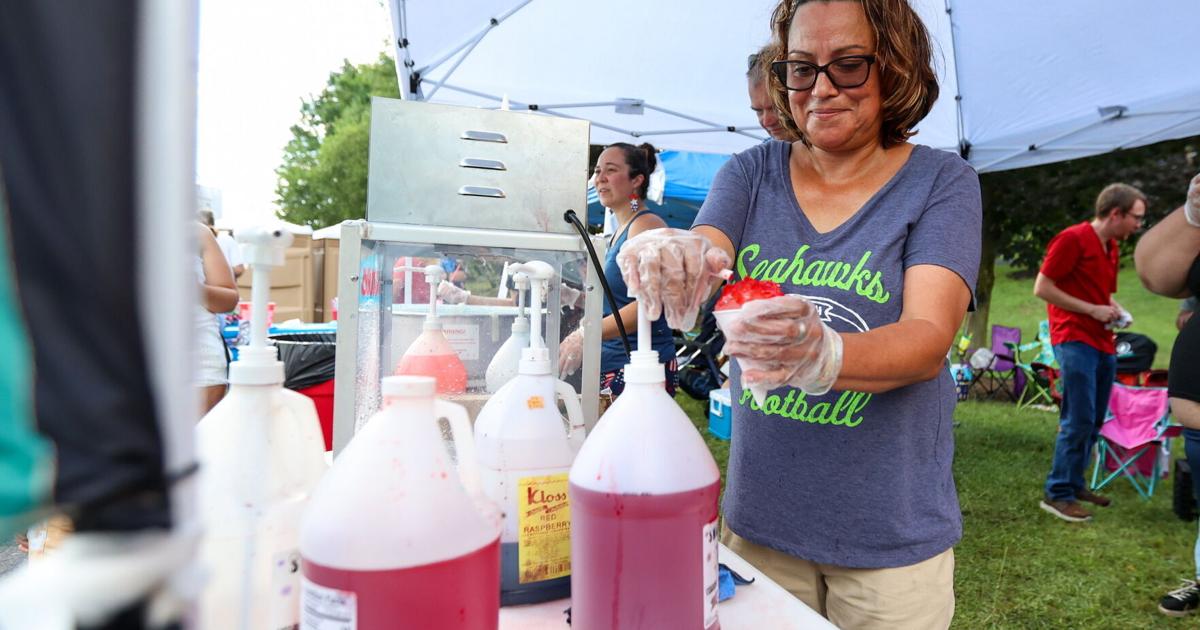
State AlabamaAlaskaArizonaArkansasCaliforniaColoradoConnecticutDelawareFloridaGeorgiaHawaiiIdahoIllinoisIndianaIowaKansasKentuckyLouisianaMaineMarylandMassachusettsMichiganMinnesotaMississippiMissouriMontanaNebraskaNevadaNew HampshireNew JerseyNew MexicoNew YorkNorth CarolinaNorth DakotaOhioOklahomaOregonPennsylvaniaRhode IslandSouth CarolinaSouth DakotaTennesseeTexasUtahVermontVirginiaWashingtonWashington D.C.West VirginiaWisconsinWyomingPuerto RicoUS Virgin IslandsArmed Forces AmericasArmed Forces PacificArmed Forces EuropeNorthern Mariana IslandsMarshall IslandsAmerican SamoaFederated States of MicronesiaGuamPalauAlberta, CanadaBritish Columbia, CanadaManitoba, CanadaNew Brunswick, CanadaNewfoundland, CanadaNova Scotia, CanadaNorthwest Territories, CanadaNunavut, CanadaOntario, CanadaPrince Edward Island, CanadaQuebec, CanadaSaskatchewan, CanadaYukon Territory, Canada
Zip Code
Country United States of AmericaUS Virgin IslandsUnited States Minor Outlying IslandsCanadaMexico, United Mexican StatesBahamas, Commonwealth of theCuba, Republic ofDominican RepublicHaiti, Republic ofJamaicaAfghanistanAlbania, People’s Socialist Republic ofAlgeria, People’s Democratic Republic ofAmerican SamoaAndorra, Principality ofAngola, Republic ofAnguillaAntarctica (the territory South of 60 deg S)Antigua and BarbudaArgentina, Argentine RepublicArmeniaArubaAustralia, Commonwealth ofAustria, Republic ofAzerbaijan, Republic ofBahrain, Kingdom ofBangladesh, People’s Republic ofBarbadosBelarusBelgium, Kingdom ofBelizeBenin, People’s Republic ofBermudaBhutan, Kingdom ofBolivia, Republic ofBosnia and HerzegovinaBotswana, Republic ofBouvet Island (Bouvetoya)Brazil, Federative Republic ofBritish Indian Ocean Territory (Chagos Archipelago)British Virgin IslandsBrunei DarussalamBulgaria, People’s Republic ofBurkina FasoBurundi, Republic ofCambodia, Kingdom ofCameroon, United Republic ofCape Verde, Republic ofCayman IslandsCentral African RepublicChad, Republic ofChile, Republic ofChina, People’s Republic ofChristmas IslandCocos (Keeling) IslandsColombia, Republic ofComoros, Union of theCongo, Democratic Republic ofCongo, People’s Republic ofCook IslandsCosta Rica, Republic ofCote D’Ivoire, Ivory Coast, Republic of theCyprus, Republic ofCzech RepublicDenmark, Kingdom ofDjibouti, Republic ofDominica, Commonwealth ofEcuador, Republic ofEgypt, Arab Republic ofEl Salvador, Republic ofEquatorial Guinea, Republic ofEritreaEstoniaEthiopiaFaeroe IslandsFalkland Islands (Malvinas)Fiji, Republic of the Fiji IslandsFinland, Republic ofFrance, French RepublicFrench GuianaFrench PolynesiaFrench Southern TerritoriesGabon, Gabonese RepublicGambia, Republic of theGeorgiaGermanyGhana, Republic ofGibraltarGreece, Hellenic RepublicGreenlandGrenadaGuadaloupeGuamGuatemala, Republic ofGuinea, Revolutionary People’s Rep’c ofGuinea-Bissau, Republic ofGuyana, Republic ofHeard and McDonald IslandsHoly See (Vatican City State)Honduras, Republic ofHong Kong, Special Administrative Region of ChinaHrvatska (Croatia)Hungary, Hungarian People’s RepublicIceland, Republic ofIndia, Republic ofIndonesia, Republic ofIran, Islamic Republic ofIraq, Republic ofIrelandIsrael, State ofItaly, Italian RepublicJapanJordan, Hashemite Kingdom ofKazakhstan, Republic ofKenya, Republic ofKiribati, Republic ofKorea, Democratic People’s Republic ofKorea, Republic ofKuwait, State ofKyrgyz RepublicLao People’s Democratic RepublicLatviaLebanon, Lebanese RepublicLesotho, Kingdom…
Greater perspectives | UDaily
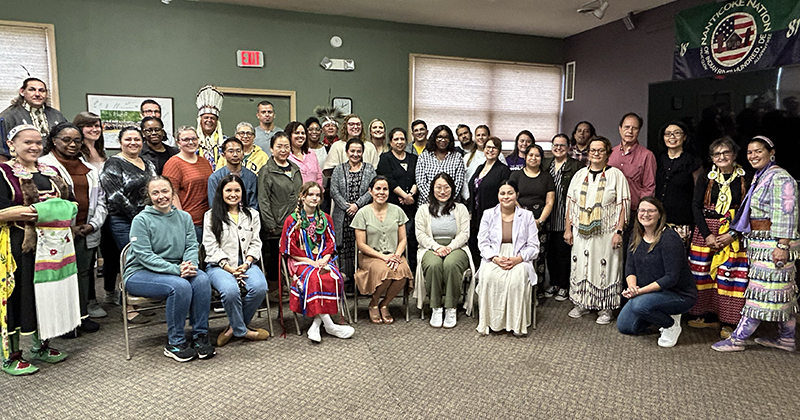
Holly Golder, supervisor of social studies in the Red Clay School District, explained that Delaware’s broad standards allow for flexibility and creativity in school curriculum, but sometimes also result in very Euro-centric content.
“We saw that there were pieces missing in the story,” Joyce said. “And teachers wanted to know more about it.”
“This grant ensures that we have different stories and histories integrated into the curriculum,” added Golder, who acts as the social studies specialist for ILD.
Primary sources and community members
One goal of the grant is to encourage teachers to utilize the Library of Congress’ vast collection of primary sources. Golder said it can be daunting to search through millions of documents, and part of what she does for each workshop is demonstrate effective search methods, as well as highlighting specific resources for each topic.
“It is like the ‘people’s library,’” she said. “This is where we have the resources of our country.”
In developing the workshop structure, Joyce knew he also wanted to include modern perspectives and contemporary sources. Every workshop features community partners like Chief Dennis Coker of the Lenape Tribe of Delaware, members of the Nanticoke Indian Association, the Hispanic American Association of Delaware’s Ballet Folklorico Mexico Lindo and Eastern Cherokee storyteller Ragghi Rain, in addition to University historians and anthropologists.
“The speakers are extraordinary. They bring such relevance and tremendous perspective,” said Jackie Wager, multilingual teacher and coordinator of the bilingual family literacy program at Milton Elementary School, who has attended all three years of ILD.
“It’s not a predominantly white community speaking about others. It’s the community being able to represent themselves,” added Matamoros.
Classroom impact
One of Matamoros’ favorite speakers came to the January workshop on “Mexico and Central America in the 20th Century.” Chef Cristina Martinez of South Philly Barbacoa…
MSN 3&&void 0!==arguments[3]?arguments[3]:p.Alert,s=arguments.length>4?arguments[4]:void 0,c=arguments.length>5?arguments[5]:void 0;try{const l=function(){if(!o){const e=document.head.getAttribute(“data-client-settings”);e&&(o=JSON.parse(e))}return o}(),u=a(),g=function(e){if(e){const{pcsInfo:t,pageGenTime:n}=e,o=new Date(n).getTime(),i=!t||[“prod”,”prod-ssr”,”prod-ssrntp”].includes(t.env);r=i?”browser.events.data.msn.com”:”events-sandbox.data.msn.com”;return{cors:”true”,”content-type”:”application/x-json-stream”,”client-id”:”NO_AUTH”,”client-version”:”1DS-Web-JS-2.2.2″,apikey:i?”0ded60c75e44443aa3484c42c1c43fe8-9fc57d3f-fdac-4bcf-b927-75eafe60192e-7279″:”f8857dedc6f54ca8962cfb713e01e7d7-e9250191-fe0b-446f-95ae-07516262f98c-7028″,”upload-time”:o,w:”0″,anoncknm:”app_anon”}}return null}(l);let m=””;g&&g.apikey&&””!==g.apikey&&(m=function(e){if(e){const t=e.indexOf(“-“);if(t>0)return e.substring(0,t)}return””}(g.apikey));const f=function(e,t,n,o,i,s){let r=arguments.length>6&&void 0!==arguments[6]?arguments[6]:p.Alert;if(n){i=i||{};const{apptype:c,audienceMode:l,pagetype:u,pageGenTime:p,bundleInfo:h,deviceFormFactor:g=””,fd_muid:m,os:f}=n;i.pageGenTime=p,i.build=h&&h.v,i.appType=c;const b=function(e,t,n){const o=n&&”phone”===n.toLowerCase(),i=t&&”enterprise”===t;return{bingHomepage:”binghomepage”,mmx:”emmx”,edge:”spartan”,edgeChromium:i?”entnews”:”anaheim”,hybrid:”spartan”,hub:o?”prime_mobile”:”prime”,microsoftNews:”msnews”,office:”entnews”,views:o?”prime_mobile”:”prime”,windowsShell:”windowsshell”}[e]}(c,l,g),v=b||c,y=document.getElementsByTagName(“html”)[0].getAttribute(“lang”);let k,S=””,A=”muid”;try{if(“edgeChromium”===c&&”object”==typeof window&&window.location&&window.location.search){const e=new URLSearchParams(window.location.search);k=e.has(“startpage”)?”msedgdhp”:”msedgntp”,”enterprise”===l?k=”entnewsntp”:”xbox”===f&&(k=”xboxntp”)}window&&window.getCookieConsentRequired&&”function”==typeof window.getCookieConsentRequired&&window.getCookieConsentRequired()||(S=d(“muid”))}catch{}S||(S=n.aid,A=”aid”);const C={name:”MS.News.Web.AppError”,time:p,ver:”4.0″,iKey:`o:${o}`,data:{baseData:{},baseType:”MS.News.Web.Base”,page:{name:”default”,product:v,type:w(u),content:{category:”standaloneError”},ocid:k},browser:{clientId:S,clientIdType:A},flight:{id:s},request:{activityId:n.aid,requestId:n.aid,afdMuid:m},locale:{mkt:y},extSchema:{id:e,severity:r,pb:i,message:t}}};var a;if(S&&”muid”===A)C.ext={…null==C?void 0:C.ext,user:{…null==C||null===(a=C.ext)||void 0===a?void 0:a.user,localId:`t:${S}`}};return C.data.flight.tmpl=””,”object”==typeof window&&(window.isSSREnabled&&(C.data.flight.tmpl+=”;ssr-enabled:1″),window.isSSRCompleted&&(C.data.flight.tmpl+=”;ssr-completed:1″)),C?JSON.stringify(C):null}return null}(t,e,l,m,n,u,i);if(c&&!function(e){if(null==e)return!1;return e.startsWith(“2”)||e.startsWith(“3″)}(null==l?void 0:l.aid))return console.error(f),void console.error(`This App error Id: ${t} will not be sent due to app error sampling!`);if(g&&f){console.error(f),h.push(f);const e=”https://”+r+”/OneCollector/1.0″+function(e){return”?”+Object.keys(e).map((function(t){return t+”=”+encodeURIComponent(e[t])})).join(“&”)}(g);if(s&&!performance.getEntriesByType(“visibility-state”).some((e=>”visible”===e.name))){const t=()=>{“visible”===document.visibilityState&&navigator.sendBeacon(e,f)};document.addEventListener(“visibilitychange”,t,{once:!0})}else navigator.sendBeacon(e,f)}}catch{}}function w(e){let t=e;switch(e){case”windowsshellhp”:t=”dhp”;break;case”video”:t=”watch”}return t}const m=”visibilitychange”;function f(){return”visible”===document.visibilityState?Promise.resolve():new Promise((e=>{document.addEventListener(m,(()=>{“visible”===document.visibilityState&&e()}))}))}function b(e){const t=window&&window.chrome&&window.chrome.ntpSettingsPrivate;t&&t.logLoadingError&&f().then((()=>{t.logLoadingError(e)}))}function v(e){try{if(e)return JSON.parse(e)}catch(e){}return null}function y(){return!(“undefined”==typeof window||!window.document||!window.document.createElement||window.isRenderServiceEnv)}const k=”Authorization”;var S,A;!function(e){e.Presentation=”presentation”}(S||(S={})),function(e){e.Unknown=”Unknown”,e.Portrait=”Portrait”,e.Landscape=”Landscape”}(A||(A={}));var C,x;!function(e){e[e.Undefined=0]=”Undefined”,e[e.Basic=1]=”Basic”,e[e.Advanced=2]=”Advanced”,e[e.Premium=3]=”Premium”}(C||(C={})),function(e){e.Init=”init”,e.Config=”config”,e.Targeted=”targeted”,e.Sticky=”sticky”,e.NoSticky=”no_sticky”,e.Admin=”admin”,e.Forced=”forced”,e.Manual=”manual”}(x||(x={}));new Set([“winp0dash”,”winp1taskbar”,”winp1taskbarent”,”winp1taskbardirect”,”winp1taskbardirectent”,”winp1taskbarent”,”winp2juntaskbar”,”winp2juntaskbarent”,”winp2″,”winp2ent”,”winp2fp”,”winp2fpent”,”winp2fptaskbar”,”winp2fptaskbarent”,”winp2fptaskbarhover”,”winp2fptaskbarhoverent”,”winp2widget”,”winp2widgetent”]);const I=new Set([“finance-app-win”,”weather-app-win”,”winpstoreapp”]),_=(new Set([“msedgdhp”,”msedgdhphdr”,”msedgntphdr”,”msedgntp”,”msedgdhp”,”entnewsntp”]),new Set([“hpmsn”]));function q(){var e;return y()?v(document.head.dataset.clientSettings||(null===(e=document.getElementsByClassName(“peregrine-widget-settings”)[0])||void 0===e?void 0:e.getAttribute(“data-client-settings”))):null}const E=”feed/personalize/settings”;function O(e,t){const n=t.replace(/[[]]/g,”\$&”),o=new RegExp(“[?&]”+n+”(=([^&#]*)|&|#|$)”).exec(e);if(!o)return null;const i=o[2];return decodeURIComponent(i.replace(/+/g,” “))||””}let N=new class{constructor(){y()?(this.isDebugEnabled=(O(window.location.href,”debug”)||””).toLowerCase()in{1:1,true:1}||”vp”===(O(window.location.href,”reqsrc”)||””).toLowerCase(),this.isDebugEnabled&&!n.g.TEST_ENV&&(window.webpackRequire=n)):this.isDebugEnabled=!1}getLoggingService(){return null}isDebug(){return this.isDebugEnabled}setDebug(e){this.isDebugEnabled=e}setTags(e){}log(e,t){this.isDebug()&&console.info(e)}logError(e){console.error(e)}logCallback(e){this.isDebug()&&console.info(e())}logObjects(){this.isDebug()&&console.log(…arguments)}logSingleObject(e,t){this.isDebug()&&console.log(e)}};class T{get supported(){return!!this.storage}constructor(e){this.storage=e}getItem(e){if(this.supported)return this.storage.getItem(e)}getObject(e,t){const n=this.getItem(e);if(null!=n){const e=v(n);if(null!=e)return e}return t}key(e){if(this.supported&&e>=0)return this.storage.key(e)}keys(){return this.supported?Object.keys(this.storage):[]}setObject(e,t){void 0!==t?this.setItem(e,JSON.stringify(t)):this.removeItem(e)}removeObject(e){const t=this.removeItem(e);if(null!=t)return v(t)}setItem(e,t){let n=!(arguments.length>2&&void 0!==arguments[2])||arguments[2];if(this.supported)try{if(!t)throw”Attempted to store null/undefined value: “+t;this.storage.setItem(e,t)}catch(e){if(!n)throw e;N.logError(e)}else if(!n)throw new Error(“WebStorage not supported”)}get length(){if(this.supported)return this.storage.length}removeItem(e){if(this.supported){const t=this.getItem(e);return this.storage.removeItem(e),t}}clear(){this.supported&&this.storage.clear()}removeSubstringKeys(e){if(!this.supported||!e)return;const t=[];for(let n=0;n
Continue reading
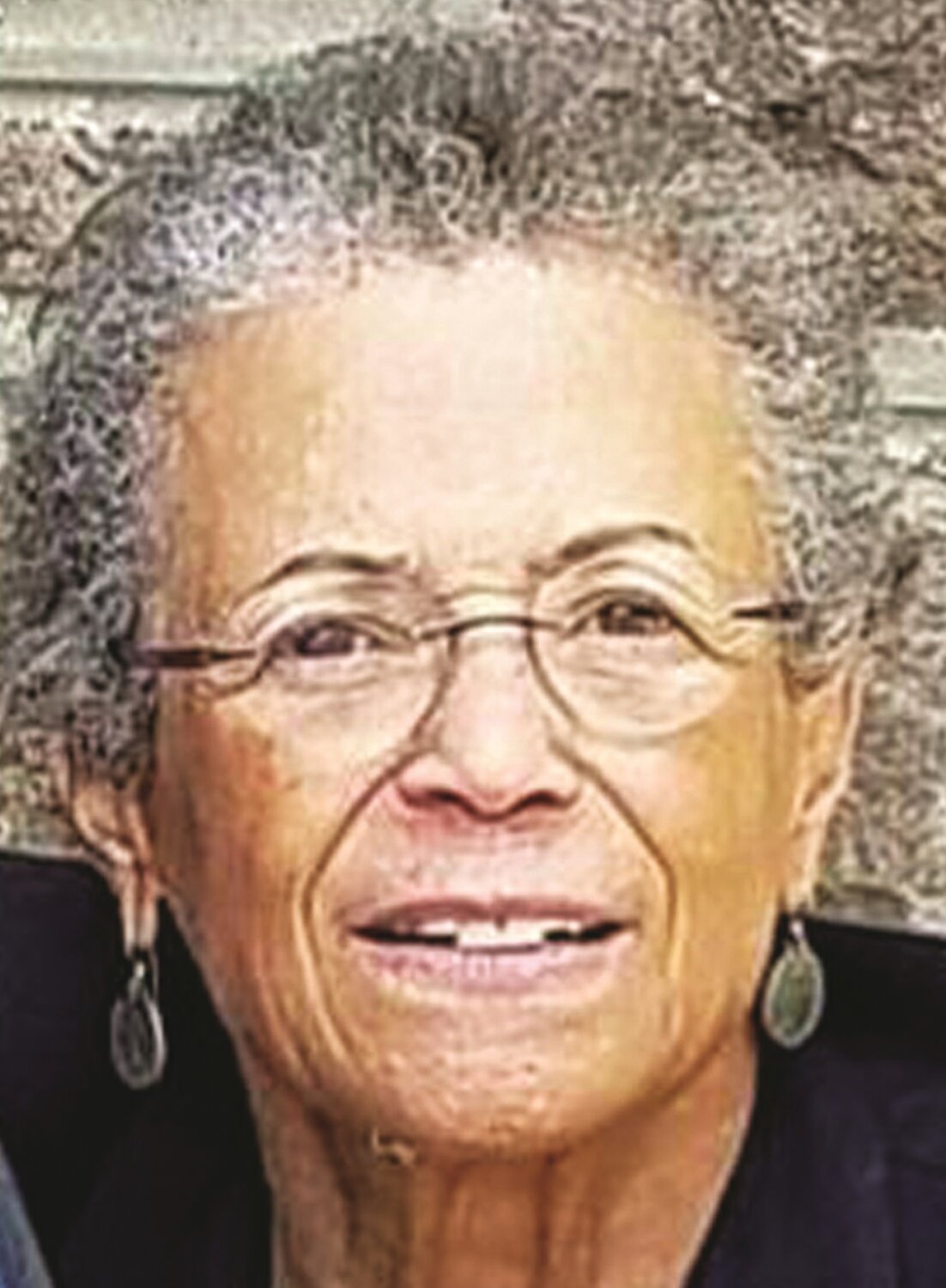
Doreen Stratton
There are times when life treats you with a piece of knowledge about your hometown and you tuck it away, unless it pops up in your memory bank at an unexpected moment. Eleven years had passed before it happened for me.
It was Saturday, April 6, 2013, when a historical marker was unveiled at the corners of State and Main streets in Doylestown Borough. The marker dedicated this intersection as the trail for the Lenni Lenape Nation as they traveled from the east and from the south to their destination, the Delaware River.
The Doylestown Historical Society with assistance from Melissa Cornick, a journalist, and strategic communication specialist (for professional activities), coordinated the day’s event, which included a lecture by Professor Evan Pritchard, descendant of the Micmac people (part of the Algonquin Nation).
Earlier that same day Pritchard’s, an Algonquin Historian, had lectured to a packed audience at the Doylestown Presbyterian Church. I was impressed with Pritchard describing the Lenape historic trade route, the stop at State and Main streets, its ancient land use, and the pathways along what became Routes 202 and 611.
After the marker dedication, there was a lively afternoon powwow at the Doylestown Historical Society Park.
Pritchard’s visit allowed him to tour some of the tunnels which remain below our town’s streets. Thousands of years ago these “tunnels” were caves where the Lenape, a nomadic indigenous tribe, rested after traveling from the shores of New Jersey.
Eleven years after the Lenape Marker’s dedication, the front-page April 4, 2024, edition of the Bucks County Herald reported:
“Bucks County Historical Society’s Doylestown Twp. Land eyed for luxury homes.”
Where, you ask, is this land?
When you drive south on Main Street in Doylestown Borough, across from the new Wawa is a thicket of trees — 24…

The Nanticoke Fire Department’s request for a fire engine to cross the Nanticoke/West Nanticoke Bridge for emergencies has been denied “after careful consideration and review,” Luzerne County Manager Romilda Crocamo informed city Fire Chief Mark Boncal Monday.
“The bridge does not have adequate capacity for the proposed emergency vehicle due to the deteriorated diagonal tie bar member which is limiting the capacity of the bridge,” Crocamo said in the communication.
Crocamo provided a copy of the load rating analysis to Boncal and indicated the information also was provided to the Pennsylvania Department of Transportation.
Crocamo announced in May the weight limit of the county-owned span over the Susquehanna River was reduced to 5 tons. The decision was made after a review of the bridge inspection report, discussions with PennDOT and “in consideration of public safety,” she had said.
Passenger vehicles are permitted under the reduced weight limit but not fire trucks and emergency rescue vehicles, officials have said.
Nanticoke’s fire department relied on the bridge to provide primary fire/rescue coverage to Plymouth Township’s West Nanticoke area on the other side of the river. Depending on location, other township sections are covered by fire departments in Larksville, Plymouth and Lake Silkworth.
These fire coverage changes stemmed from the 2019 disbanding of the township’s Tilbury Fire and Rescue Station primarily due to financial issues.
Without the exemption, the city fire truck must reach Plymouth Township by crossing the river over the alternate route now in effect — the John S. Fine Bridge, which is the official name of the Route 29/South Cross Valley Expressway span.
Nanticoke’s engine/pumper weighs 42,000 pounds, which equates to 21 tons, Boncal has said.
His exemption application requested up to 15 trips across the Nanticoke/West Nanticoke Bridge through the end…
